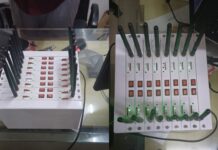The impact of the disruptions brought by COVID-19 pandemic in the school education, will perhaps be felt by an entire generation of learners. While school closures have changed the methods of instruction delivery, those very closures have also strongly brought home the non-negotiable role of schools in the development of the cognitive, psychomotor and affective domains of the child. The pandemic has on the one hand shown some gaps that need to be filled, on the other, it has revealed the inherent capacity and propensity of the school education sector to innovate. Over the years we have been looking closely at the macro picture and registering progress in the enrolment rates, access ratios, pupil teacher ratios, achievement rates, etc. The pandemic has required us to go micro, to track each child, each teacher and each school to ensure that teaching and learning continue in various creative formats and no child is left behind. While resilience has often been spoken about for management or mitigation of disasters or even the economy, it is for the first time that the National Education Policy, 2020, that was released in the midst of the pandemic, after a detailed process of consultations from the bottom-up, discusses the need for being “ready with alternative modes of quality education whenever and wherever traditional and in-person modes of education are not possible.”
The recent budget announcements for the school education sector need to be seen in the light of the above. Keeping the child at the centre, the focus of allocations in FY 2021-22 is on qualitative strengthening of schools and intensive capacity building of all teachers to deliver inclusive, holistic and joyful education that is also supported by an extensive IT infrastructure for education.
Joy of learning becomes inculcated as a lifelong skill in a child only through positive intellectual and emotional experiences in the classroom and the school. It is planned that around 15,000 schools from across the country, will be flushed with good infrastructure, well-trained teachers and creative teaching methods, to emerge as schools of excellence over a period of three to five years, providing high-quality education in an equitable, inclusive and joyful school environment that takes care of the diverse background, multilingual needs, and different academic abilities of children. Besides these, all other governemnt schools will continue to be developed by providing budget allocation for basic infrastructure, facilities and resources for enhancing access, quality and equity.
Teachers are the lynchpin, the backbone and the force that sustains a qualitative school education system. To be able to carry forward the vision of these schools of excellence, teachers will need to learn, re-learn as well as unlearn and strive to achieve certain standards too. While unlearning the over reliance on the chalk and talk method, teachers will need to learn about creative pedagogies – such as, art/sport/storytelling/IT/activity/life skills/values integrated learning, how to use the mother tongue as the bridge language in early years, stage appropriate learning outcomes, criterion referenced assessment, etc. During the year, all the teachers across the country can look forward to systematic online NISHTHA (National Initiative for School Heads and Teachers for Holistic Advancement) training modules in the public domain that will encompass these and many other relevant areas for teaching foundational years to grade 12. Professional attributes, knowledge and skills to be achieved by all teachers shall be laid down as benchmarks through the National Professional Standards for Teachers to guide their actions in each and every classroom. These changes cannot happen overnight. A systematic mentoring intervention is planned for teachers and Teacher Educators throughout the transformative process.
At the centre of it all, shall always be the child. A unique toy-based learning and pedagogy is on the anvil for pre-school to grade 12 students. This will integrate not just indigenous toys as a tool for teaching and learning, but also games (including board games, card games, electronic games), puzzles, puppets, activities, etc. shall be used to educate children on topics and subjects ranging from languages, to science, mathematics, history, etc. Teacher, Parent, Self and Peer assessment of the uniqueness in each child through the Holistic Progress Card will be piloted this year for foundational years. This will become the harbinger for diminishing the focus on rote learning and on textbook/syllabus completion and help the child become a critical thinker and problem solver, with excellent creativity and communication skills. Indian Sign Language will be standardized to ensure complete participation. The Board Exam reforms have already been initiated by CBSE and this will accelerate the process of transformation.
Alongside above interventions, resilience will be built in the school education sector through N-DEAR. The blueprint for the National Digital Education ARchitecture will be ready this year. It is being envisioned as an open, scaleable and interoperable digital infrastructure that will be beneficial for both Centre and States in planning, administering and governing school education. It will also provide teachers, students and schools in having a seamless digital learning experience.
As we look forward to the pandemic losing its steam, the budget this year promises to infuse joy and resilience in school education with the child-always-at-the-centre approach.














